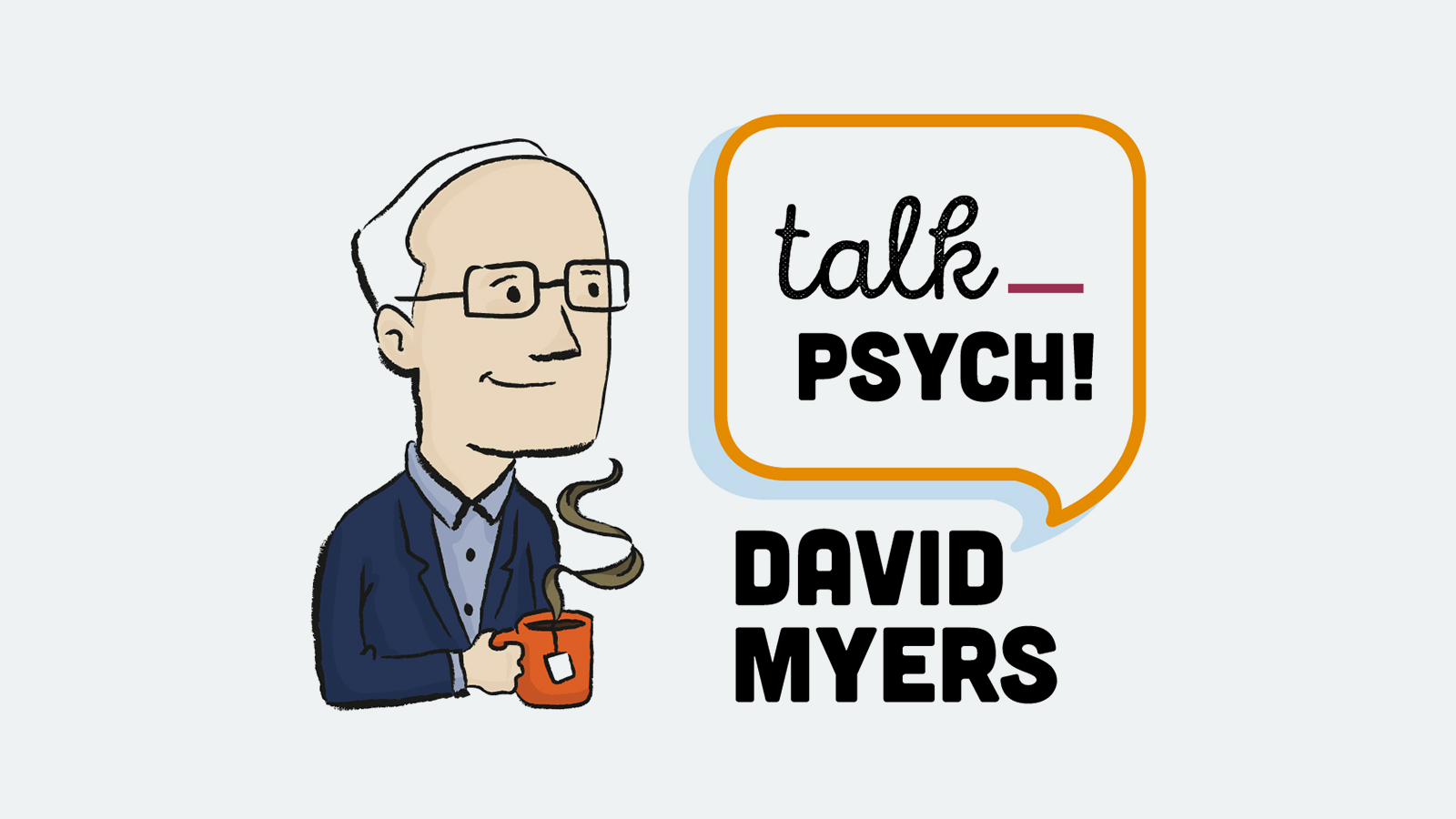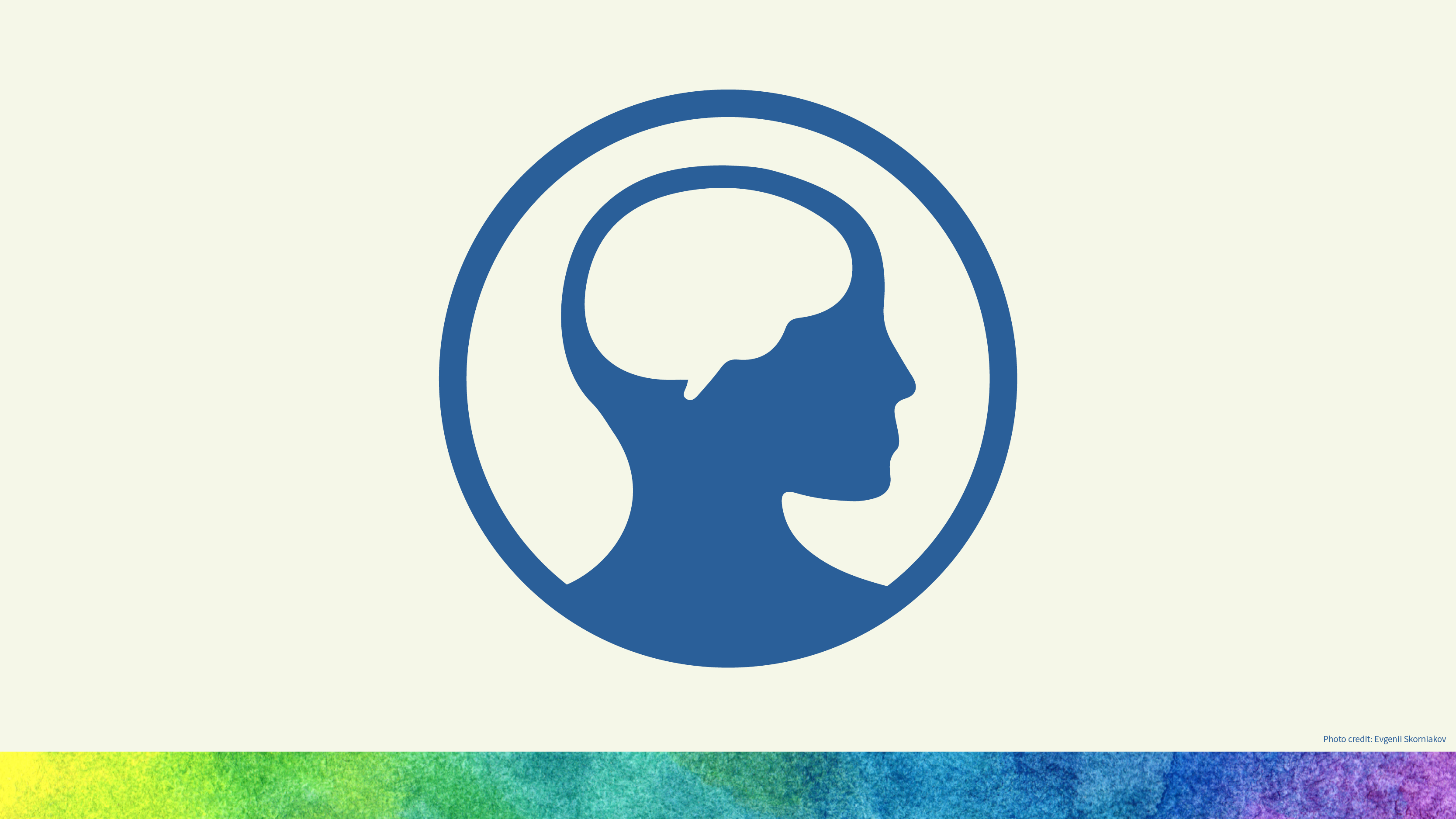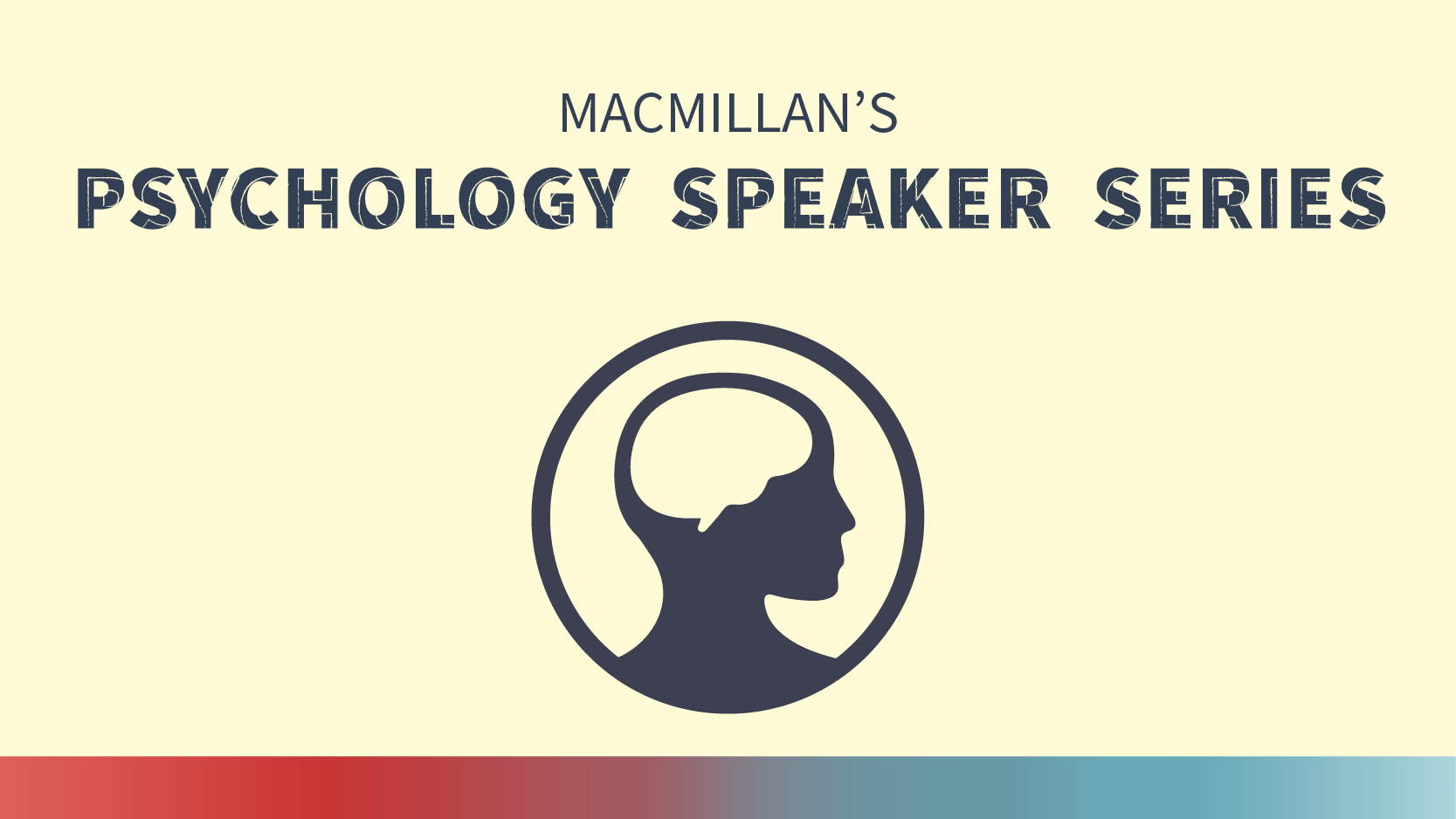-
About
Our Story
back- Our Mission
- Our Leadershio
- Accessibility
- Careers
- Diversity, Equity, Inclusion
- Learning Science
- Sustainability
Our Solutions
back
-
Community
Community
back- Newsroom
- Webinars on Demand
- Digital Community
- The Institute at Macmillan Learning
- English Community
- Psychology Community
- History Community
- Communication Community
- College Success Community
- Economics Community
- Institutional Solutions Community
- Nutrition Community
- Lab Solutions Community
- STEM Community
- Newsroom
- Macmillan Community
- :
- Psychology Community
- :
- Psychology Blog
Psychology Blog
Options
- Mark all as New
- Mark all as Read
- Float this item to the top
- Subscribe
- Bookmark
- Subscribe to RSS Feed
Psychology Blog
Showing articles with label Current Events.
Show all articles
Expert
02-19-2024
09:35 AM
In an Optimist Daily article this morning, I learned that there are 54 Taylor Swift songs that have a beat that matches the recommended number of beats per minute for giving CPR (Optimist Daily, 2024). The healthcare professionals who identified the songs think that these songs may be more relevant to younger generations than the Bee Gees Stayin’ Alive. I’m going to digress a bit before getting to the student activity. <DIGRESSION> First digression thread. I cannot think of Stayin’ Alive without first thinking of Saturday Night Fever followed immediately by Airplane!. If you’re desperate for examples of retrieval cues, you’re welcome to use those. I wonder how many of your students know that the “man dancing” emoji (🕺🏻) is John Travolta from Saturday Night Fever. If you’re looking for a light but very entertaining read, check out Surely You Can't Be Serious: The True Story of Airplane!. If you want to give Stanley Milgram’s six degrees of separation some love, I know someone who knew the actor who played the character to first vomit. He obviously knew Leslie Nielsen and Kareem Abdul Jabbar. If you know me, then you are five degrees from them, making you six degrees from just about everybody in the acting world and the sports world. If you and I haven’t met yet, then let’s meet the next time we’re at a conference together. Just say, “Hi, I want to get closer to Leslie Nielsen.” Second digression thread. Ambulances used to be operated by police departments. No treatment was offered along the way. There was one goal: get the injured to a hospital as quickly as possible. One physician—the one who invented CPR—and an all-Black ambulance crew in Pittsburgh changed ambulances into what they are today. For that history, I highly recommend the book American Sirens: The Incredible Story of the Black Men Who Became America's First Paramedics. Third digression thread, which is really a sub-digression. My wife volunteers for the box office—it’s a small table and a laptop—at our local arts theater. One patron who is a frequent attendee has an incredible mental database of actors and movies that he shares snippets from. For example, he recently shared that one actor’s niece and another actor’s daughter appeared in a movie together. Not the movie that was playing that night, mind you, but some other movie. I’m afraid that I don’t remember what cued this particularly memory for him. In my defense, I didn’t know I was going to need a few days later! My first two digressions remind me of this guy. Something cued his retrieval of that movie, and in this blog post, I seem to sharing with you every memory retrieval I am having this morning. Which leads to… …the fourth digression thread. Have you seen the 2024 Oscar-nominated film for Best Picture, American Fiction? That was the movie that was playing the night I met the affectionately named Random Movie Fact Guy. If you haven’t seen American Fiction, I highly recommend seeing it. Be sure to notice the cameo by Kenneth and Mamie Clark’s doll study. < END DIGRESSION> I also learned from the Optimist Daily article that this Taylor Swift/CPR information was delivered at Swiftposium 2024 held Feb 11-13 at the University of Melbourne. It appears that the Swiftposium was an opportunity for the University of Melbourne faculty to share with the University of Melbourne community how their fields intersect with the cultural phenomenon that is Taylor Swift. While I am not a Swiftie—nor am I an anti-Swiftie—I enjoy a good cultural phenomenon. As of December 2023, nine of her songs had over a billion listens on Spotify (Morgenstern, 2023). Whether your students are Swifties or not, a cultural phenomenon is worthy of psychological study. As an activity to wrap up Intro Psych, consider inviting your students to present at their own in-class Swiftposium—posters or presentations, individually or small groups, in-person or online. Do whatever makes the most sense given your course modality and number of students. Even if you don’t do a Swiftposium, this would work as the basis for a written assignment or discussion. Instructions: Identify one concept we covered in this course (in class or in your course readings) and explain how that concept connects to Taylor Swift. The connection could be to just about anything, such as her music, her concerts, her fans, or her relationship with Kansas City player Travis Kelce. Identify the concept, briefly explain the concept, and then draw the connection to Taylor Swift. Here are a few examples. After the Super Bowl, Kelce asked Swift who had flown in from Tokyo for the game, “How do you not have jet lag right now?” She replied, “Jet lag is a choice” (Hanson, 2024). Based on what students have learned about sleep, is jet lag a choice? From what we know about jet lag, what might Taylor Swift have done to minimize jet lag? What behaviors do Swifties engage in to signal in-group membership to other Swifties? Taylor Swift encouraged her fans in an Instagram post to register to vote by going to Vote.org. “Vote.org registered more than 35,000 voters after Swift's post, which was a 22.5% increase from the previous year, organization CEO Andrea Hailey said Wednesday. There was a 115% increase in registrations by 18-year-olds when compared to last year. The organization also helped 50,000 people verify their registration status” (Chasan, 2023). This behavior could be explained by the persuasion principle of liking. References Chasan, A. (2023, September 21). More than 35,000 people register to vote after Taylor Swift post—CBS News. https://www.cbsnews.com/news/taylor-swift-encourages-voter-registration/ Hanson, H. (2024, February 17). Taylor Swift’s 5-word take on jet lag will have you go, “Hmmm.” Yahoo Entertainment. https://www.yahoo.com/entertainment/taylor-swifts-5-word-jet-170134945.html Morgenstern, L. (2023, December 5). Taylor Swift’s 15 most popular songs, ranked (according to Spotify). TheThings. https://www.thethings.com/taylor-swift-most-popular-songs/ Optimist Daily. (2024, February 19). Fearless hearts: More than 50 Taylor Swift songs are perfect for life-saving CPR. https://www.optimistdaily.com/2024/02/fearless-hearts-more-than-50-taylor-swift-songs-are-perfect-for-life-saving-cpr/
... View more
Labels
-
Current Events
-
Teaching and Learning Best Practices
1
0
1,729
Expert
06-19-2022
08:05 AM
In the June 2022 edition of the APA Monitor on Psychology is an excellent article on the psychology of traffic safety. The article features David Strayer’s “four horsemen of death”: speed, impairment, fatigue, and distraction. Given the number and breadth of psychological concepts covered, this article provides fodder for a good end-of-term assignment. It may also save the lives of your students. Note that the journalist uses the term “crash” rather than “accident.” “Crash” is the preferred term by U.S. government agencies, such as the CDC and the National Highway Traffic Safety Administration (NHTSA). The word “accident” implies an incident that could not be avoided. The word “crash” does not carry that connotation. Giving the causes of traffic fatalities are due to driver decision-making, whether it be the driver of the vehicle or the driver of another vehicle, “crash” is a better descriptor than “accident.” Ask students to read the article “Improving Traffic Safety” (Pappas, 2022), and then answer the following questions. How many people died on U.S. roadways in 2020? Speed. What percentage of the 2020 traffic fatalities were estimated to be caused by excessive speed? The article describes three ways that our environment can contribute to unsafe driving. Take a photo of a road in your area that illustrates one or more of these environmental hazards. Explain. The article also describes three ways that our environment can contribute to safe driving. Take a photo of a road in your area that illustrates one or more of these environmental benefits. Explain. In a survey of drivers at the beginning of the pandemic, researchers “saw an increase in respondents saying they were more likely to break the law because they knew they were less likely to be caught.” Explain this finding in terms of operant conditioning. With fewer people on the roads during the pandemic shut-down, researchers speculate that street racing may have increased. What Ontario law led to a reduction in street racing? Explain this effect in terms of operant conditioning. If you are primarily a driver, what can you do to reduce your chances of dying in a car crash due to speed? If you primarily a passenger, what can you do to reduce your chances of dying in a car crash due to speed? Impairment. What percentage of the 2020 traffic fatalities were estimated to be caused by impaired driving? Based on your reading of the article, describe the relationship between stress, alcohol, and driving while impaired. What Big Five personality trait is associated with a history of driving while impaired and reckless driving? Given your knowledge of this trait, why might that association exist? Fatigue. What percentage of the 2020 traffic fatalities were estimated to be caused by fatigue? Why might this number be an underestimation? Summarize what you learned in this course about the effects of sleep deprivation. Choose five effects, and for each, briefly explain how it could negatively effect driving. According to the article, what have Australian highway authorities done to combat boredom on empty stretches of highway? Distraction. What percentage of the 2020 traffic fatalities were estimated to be caused by distracted driving? Explain how stress may contribute to distracted driving. Explain how the design of cars may contribute to distracted driving. Give at least one example. Conclusion. What was the most surprising thing you learned in this article? Explain. Identify at least one concept you learned in this course that could apply to speed, impairment, fatigue, or distraction but was not discussed in the article. Briefly describe the concept, and then explain how it could be a contributor to car crashes. Reference Pappas, S. (2022, June). Improving traffic safety. Monitor on Psychology, 53(4), 46–55.
... View more
Labels
0
1
3,188
Expert
01-07-2022
11:39 AM
A break is never a waste of time, especially under circumstances of increased stress. https://www.psychologytoday.com/us/articles/202201/take-break
... View more
Labels
-
Current Events
0
0
3,374
Macmillan Employee
06-17-2021
08:34 AM
Do your students know what makes them happy? They probably think they do, and much what they think is probably wrong. Professor Gilbert will discuss the science of happiness, and tell you about some findings that will surprise your students – and maybe you as well!
WATCH RECORDING
... View more
Labels
-
Current Events
-
Emotion
-
Teaching and Learning Best Practices
-
Virtual Learning
0
0
8,623
Expert
10-06-2020
01:56 PM
Mask-wearing (or not) continues to be a social psychological goldmine. In this case, let’s take a look at conformity. The social pressure to wear or not wear a mask is pervasive. If you are not wearing a mask but are surrounded by people who are, you can feel the pressure to conform to the group’s behavior and put your mask on. If you are wearing a mask but are surrounded by people who are not, you can feel the pressure to conform to the group’s behavior and take your mask off. Even medical doctors who know the value of wearing masks as a coronavirus transmission preventative can feel the social pressure at a party where no one else is wearing a mask, as described in the New York Times article below. And imagine being at the White House reception for Supreme Court nominee Amy Coney Barrett, a reception where no one was wearing a mask. After covering conformity, provide the following discussion prompt. ******** Part A. Read this New York Times article: “If You See Someone Not Wearing a Mask, Do You Say Something?” (It’s better to link to this September 13, 2020 article in your library database as students may have exceeded their number of free New York Times articles for the month.) From our textbook reading, identify the factors that increase the likelihood of conforming. For each, note whether the factor was present in Dr. Robert Klitzman’s party experience. Provide evidence from the article. Part B. Review these photos taken on September 26, 2020. For each factor that increases the likelihood of conforming, note whether the factor was present. Provide evidence from the photos and article. Part C. Have you had a similar experience where you felt social pressure to wear a mask or not? Describe the experience. Which factors that increase the likelihood of conforming were present for you? Which were absent? Finally, what did you do: conform or not conform? Part D. Lastly, when put in the same position again, would thinking about the factors that increase the likelihood of conforming affect your ability to resist the social pressure? Why or why not?
... View more
Labels
-
Current Events
-
Social Psychology
1
0
7,164
Expert
07-27-2020
01:58 PM
A lot of my Intro Psych students struggle with the concept of cognitive dissonance. If circumstances, say, a pandemic, provide an example of cognitive dissonance, and a couple social psychologists, say, Elliot Aronson and Carol Tavris, present the explanation, how could I not use it? In their article in The Atlantic, Aronson and Tavris (2020) write: Dissonance is most painful when evidence strikes at the heart of how we see ourselves—when it threatens our belief that we are kind, ethical, competent, or smart. The minute we make any decision—I’ll buy this car; I will vote for this candidate; I think COVID-19 is serious; no, I’m sure it is a hoax—we will begin to justify the wisdom of our choice and find reasons to dismiss the alternative. As a discussion (synchronous or asynchronous), present this scenario to your students. ******************* Cognitive dissonance and COVID-19 discussion: Part I Let’s start with the premise that I believe that I’m the kind of person who makes smart decisions. I want to see my extended family and my friends; I should go out. But, dang, that virus is out there. It could make me very sick. Heck, it could kill me; I should stay home. I have cognitive dissonance between two thoughts. Let’s say that I go out to visit family and friends. Now I have cognitive dissonance between a behavior and a thought: I’m visiting with people but that’s clashing with knowing that this behavior could be dangerous. Identify at least two things I could think or do that may reduce my dissonance. ******************* Once students have offered their suggestions, such as saying “I’m young and healthy, it probably won’t affect me if I catch it,” prompt with this follow-up. ******************* Cognitive dissonance and COVID-19 discussion: Part II While it’s an easy way out of this particular cognitive dissonance, finding ways of justifying dangerous behavior is probably not the best solution. Aronson and Tavris (2020) write, Although it’s difficult, changing our minds is not impossible. The challenge is to find a way to live with uncertainty, make the most informed decisions we can, and modify them when the scientific evidence dictates—as our leading researchers are already doing. Admitting we were wrong requires some self-reflection—which involves living with the dissonance for a while rather than jumping immediately to a self-justification. Maybe what we say to ourselves instead is, “Yes, I usually make smart decisions, and I visited with people knowing that it may be dangerous to do so. While I can come up with a lengthy list of justifications, let me just sit with this for a while.” To not fall prey to cognitive dissonance we have to be able to identify the two dissonant thoughts/behaviors, and we have to be willing to stop and ask ourselves why we are doing/thinking what we’re doing/thinking. Aronson and Tavris (2020) encourage us to ask ourselves, “Why am I believing this? Why am I behaving this way? Have I thought it through or am I simply taking a short cut, following the party line…?” Choose one of the solutions offered in this discussion for how to reduce dissonance. For example, "I'm young and healthy, so I'm less likely to get sick." Now, ask, "Why do I believe this?" "Because that's what friends keep saying"? Next, evaluate the evidence. "It's true that those who are young and healthy are less likely to die, but young, healthy people can get very sick, and yes, they can die. Even if they have mild or no symptoms, they can still pass it on to others who could get very sick or die." Cite your reputable source, e.g., the Centers for Disease Control and Prevention. Reference Aronson, E., & Tavris, C. (2020, July). The role of cognitive dissonance in the pandemic. The Atlantic. https://www.theatlantic.com/ideas/archive/2020/07/role-cognitive-dissonance-pandemic/614074/
... View more
Labels
-
Current Events
-
Social Psychology
0
0
4,256
Topics
-
Abnormal Psychology
5 -
Achievement
2 -
Affiliation
1 -
Cognition
9 -
Consciousness
13 -
Current Events
6 -
Development Psychology
9 -
Developmental Psychology
12 -
Drugs
4 -
Emotion
19 -
Evolution
1 -
Gender
4 -
Gender and Sexuality
3 -
Genetics
2 -
History and System of Psychology
4 -
History and Systems of Psychology
2 -
Industrial and Organizational Psychology
15 -
Intelligence
1 -
Learning
26 -
Memory
10 -
Motivation
4 -
Motivation: Hunger
1 -
Nature-Nurture
2 -
Neuroscience
15 -
Personality
11 -
Psychological Disorders and Their Treatment
9 -
Research Methods and Statistics
41 -
Sensation and Perception
15 -
Social Psychology
45 -
Stress and Health
5 -
Teaching and Learning Best Practices
30 -
Thinking and Language
9 -
Virtual Learning
7
- « Previous
- Next »
Popular Posts








